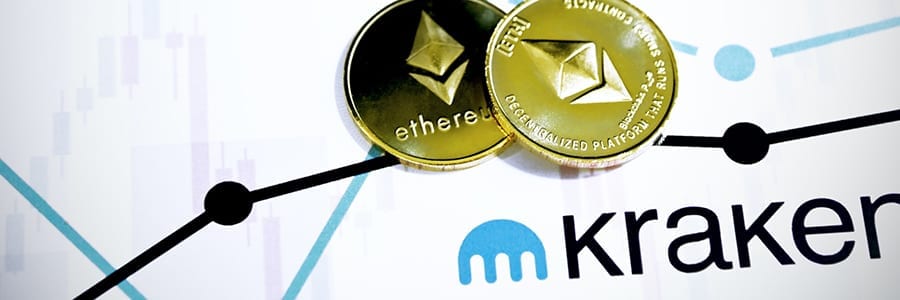Since the start of 2021, cryptocurrency exchanges have been flooded with new investors; there are now over 100 million crypto users, with a growth rate of 15.7% in January alone. While the market has slowed down since, crypto has had a long history of massive spikes and drops, so another spike wouldn’t be unusual.
To handle these increases in trading volumes, crypto companies need to have the infrastructure and technology in place. As opposed to stock markets and other mature exchanges, which have had decades to build such systems, these companies don’t have a long track record of procedures to handle a massive influx of new customers and transactions. Even though there has been a crypto downturn, the market can very quickly come back and if it does, people will likely flock back to it again to sign up for new accounts.
Identity verification procedures, while necessary for Know Your Customer (KYC) compliance, often can make it difficult for clients to sign up and for the exchanges to process clients in a timely manner. These ID procedures, if not properly automated, slow down customer onboarding, resulting in customer abandonment and lost revenue.
Let’s examine how some of the different exchanges are handling ID verification. What steps are they using? How easy is it to sign up? What security measures are they taking to protect consumers and their businesses?
Coinbase verification
Coinbase, founded in 2012, is a U.S.-based digital currency wallet and platform. It has over 56 million users and traded over USD $335 billion worth of digital currencies in the first quarter of 2021. The company went public this year, the first major cryptocurrency exchange to do so.
While Coinbase has account limits, these limits are determined based on the types of verifications that have been added to the account, the account age, purchase history, payment method and other factors.
The types of verifications include phone number, personal details and photo ID. In the U.S., a further step is to add your SSN.

Kraken verification
Kraken is a U.S.-based crypto exchange that was founded in 2011 and offers 50+ tokens. They state they are “the largest Bitcoin exchange in euro volume and liquidity and also trading Canadian dollars, U.S. dollars, British pounds and Japanese yen.”
Kraken has four tiers of accounts, with different verification requirements: Starter, Express, Intermediate and Pro. The account levels depend on how the account will be used. Each level enables more funding options and higher limits, with Pro being the highest available.
A user must be 18 years old to register or use an account. There are geographic restrictions based on the account type, services available and transaction levels permitted. All accounts require an email address, full name, date of birth, phone number and physical address for verification purposes. Except for Starter accounts, employment information and SSN for U.S. customers are also required.
The Intermediate and Pro accounts also require valid ID, proof of residence and a face photo (if in South Africa or the U.S.). Pro accounts also need to fill in a KYC questionnaire.
Binance verification
Binance is a cryptocurrency exchange platform that combines digital technology and finance. As stated in their Techcrunch profile, “the company provides access to exchange digital currency pairs on the market while maintaining security, liquidity, enabling a safe and efficient deal with anyone, anytime and anywhere.” According to Yahoo Finance, it is the world’s largest cryptocurrency exchange by trading volume.
Binance has three levels of verification with respective deposit and withdrawal limits:
Basic
Requires Name, Address, Date of Birth and Nationality and has a lifetime limit of USD $300.
Intermediate
Requires an uploaded picture of ID documentation (for example, passport, ID card, or driver’s license).
Advanced
Requires proof of address (for example, a bank statement or utility bill).

Bitfinex verification
Bitfinex is a cryptocurrency exchange that was founded in 2012. They state they are the world’s largest exchange by volume for trading Bitcoin against the U.S. dollar.
It provides exchange trading for 38 currencies/tokens and also provides margin trading, margin funding, and an over-the-counter (OTC) market for large trades. Thus, it has four types of accounts, Basic, Basic Plus, Intermediate and Full.
To withdraw or add fiat currencies to an account, verification is required. (Note, processing times for verification can take up to 2-3 days, depending on account type.) However, a user can deposit, trade and withdraw cryptocurrencies immediately upon account opening with a Basic account, which only requires a valid email address.
Individual account requirements differ based on whether you’re verifying for a Basic Plus, Intermediate or Full Verification level; however:
Age: You must be at least 18 years old to open an account.
Personal Information: Your telephone number, email address, and residential address are all required.
Identification: Two forms of valid government-issued identification with photo (for example, passport, national ID card, driver’s license, residency card, employment permit card).
An Intermediate account additionally requires a second official photo identification and proof of address, while a Full account adding the requirement of a financial statement.
OKEx verification
OKEx was founded in 2014 and is one of the top digital asset exchanges by trading volume. It serves millions of users in over 100 countries and operates out of Hong Kong. They transact USD $1.5 billion of Bitcoin (BTC) futures trading volume daily and also provide spot, margin, options, and perpetual swaps; DeFi; lending; and mining services.
At OKEx, identity verification comprises a set of rules and procedures that facilitate a secure trading environment for our users, who need to perform identity verification for the following activities:
- Buying crypto on OKEx with fiat currencies — for which users may need to perform identity verification via a third-party operator to purchase crypto with fiat currencies
- Making daily crypto withdrawals of more than 10 BTC
Identity verification is not required for users to deposit or trade crypto on OKEx.
For individuals, there are three levels of identity verification:
Level one (basic ID)
In level one, users are required to enter their nationality, name and document identification number.
Level two (photo ID)
In level two, users are required to verify their identity with photo identification. They are also required to perform facial verification.
Level three (disclaimer)
After passing the first two levels, users must read the disclaimer on OKEx’s mobile app or web page to complete the third level of identity verification.
Identity verification for crypto exchanges
To ensure crypto exchanges are performing KYC, the five major crypto exchanges listed here all require some form of ID verification. In general, the first step is eIDV (electronic identity verification), which requires filling in basic identity information. For higher-value accounts, an additional document verification process is required.
As more users sign up and more money enters the crypto space, regulators will further define the specific KYC rules that exchanges and other crypto entities must follow. For example, some regulators are examining extending travel rule requirements to crypto wallets.
Such recommendations are probably welcome by the exchanges as they might offer clarification, as well as continuity across jurisdictions. It’s doubtful that KYC requirements will be somehow watered down by the new standards. To be ready for whatever rules are proposed, exchanges should ensure their ID verification processes are thorough, secure, compatible with compliance, and as quick and seamless for consumers and their staff as possible.
More crypto: ID verification | KYC for crypto | Resources | Posts
This post was originally published on March 29, 2018. It has been updated to reflect the latest industry developments and best practices.
Solutions
Cryptocurrency
Optimize Your Crypto Onboarding
Resources Library

Cryptocurrency
Industry Sheets
Safety First: How Identity Verification Strengthens Customer Trust in the Evolving Crypto World
Featured Blog Posts
Business Verification (KYB)
Enhanced Due Diligence Procedures for High-Risk CustomersIdentity Verification
Proof of Address — Quickly and Accurately Verify AddressesBusiness Verification (KYB)
How to Verify Legitimate Businesses and Merchants


